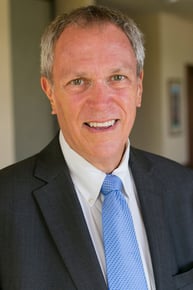Great news! The Small Business Administration (SBA) has come out with guidance that helps many who borrowed under the Paycheck Protection Program (PPP).
Last week, I posted an article regarding SBA Guidance under Question #31. The question and guidance referred to the “good-faith certification” borrowers made when taking out this loan, specifically that it was necessary to support ongoing operations. This created confusion for many small business about retaining or returning the loan proceeds by May 14, 2020 (originally May 7, 2020) to fall under the safe harbor. Those who did not return the funds were subject to an undefined audit, with undefined penalties at the time of applying for loan forgiveness.
With today’s guidance, Question #46 addresses the unknown for all who borrowed from the SBA through the PPP under the CARES Act. The first paragraph addresses the concerns for those who borrowed under $2,000,000 in total (combined with affiliates). They will be deemed to have made the request in good faith. Question #46 can be found in its entirety below.
- Question: How will SBA review borrowers’ required good-faith certification concerning the necessity of their loan request?
Answer: When submitting a PPP application, all borrowers must certify in good faith that “[c]urrent economic uncertainty makes this loan request necessary to support the ongoing operations of the Applicant.” SBA, in consultation with the Department of the Treasury, has determined that the following safe harbor will apply to SBA’s review of PPP loans with respect to this issue: Any borrower that, together with its affiliates,20 received PPP loans with an original principal amount of less than $2 million will be deemed to have made the required certification concerning the necessity of the loan request in good faith.
SBA has determined that this safe harbor is appropriate because borrowers with loans below this threshold are generally less likely to have had access to adequate sources of liquidity in the current economic environment than borrowers that obtained larger loans. This safe harbor will also promote economic certainty as PPP borrowers with more limited resources endeavor to retain and rehire employees. In addition, given the large volume of PPP loans, this approach will enable SBA to conserve its finite audit resources and focus its reviews on larger loans, where the compliance effort may yield higher returns.
Importantly, borrowers with loans greater than $2 million that do not satisfy this safe harbor may still have an adequate basis for making the required good-faith certification, based on their individual circumstances in light of the language of the certification and SBA guidance. SBA has previously stated that all PPP loans in excess of $2 million, and other PPP loans as appropriate, will be subject to review by SBA for compliance with program requirements set forth in the PPP Interim Final Rules and in the Borrower Application Form. If SBA determines in the course of its review that a borrower lacked an adequate basis for the required certification concerning the necessity of the loan request, SBA will seek repayment of the outstanding PPP loan balance and will inform the lender that the borrower is not eligible for loan forgiveness. If the borrower repays the loan after receiving notification from SBA, SBA will not pursue administrative enforcement or referrals to other agencies based on its determination with respect to the certification concerning necessity of the loan request. SBA’s determination concerning the certification regarding the necessity of the loan request will not affect SBA’s loan guarantee.21
For those who have borrowed in excess of $2,000,000, this guidance has clarified the process and penalties if the SBA deems you have not met the “good-faith certification.” The highlighted portion below is for those who borrowed in excess of $2,000,000 and, through the audit process, the SBA deems did not meet the “good-faith certification." To sum this up, the unused portion of the loan will be due immediately and the remainder will be treated as a loan and not forgiven or considered a grant. Still, the SBA may pursue administrative enforcement or referrals. To avoid that, after receiving notification from the SBA of an inadequate basis for providing “good-faith certification," immediate repayment of the entire amount will provide a “safe harbor” of sorts to avoid administrative enforcement or referrals to other agencies.
If SBA determines in the course of its review that a borrower lacked an adequate basis for the required certification concerning the necessity of the loan request, SBA will seek repayment of the outstanding PPP loan balance and will inform the lender that the borrower is not eligible for loan forgiveness. If the borrower repays the loan after receiving notification from SBA, SBA will not pursue administrative enforcement or referrals to other agencies based on its determination with respect to the certification concerning necessity of the loan request. SBA’s determination concerning the certification regarding the necessity of the loan request will not affect SBA’s loan guarantee.21
As mentioned last week, the SBA continues to update its guidance under the FAQ section which can be found here.
As for loan forgiveness, please make sure you continue to document your payments as required by the SBA.
If you have any questions, please do not hesitate to reach out to us at Hausmann-Johnson Insurance | The Benefit Services Group.

COMMENTS